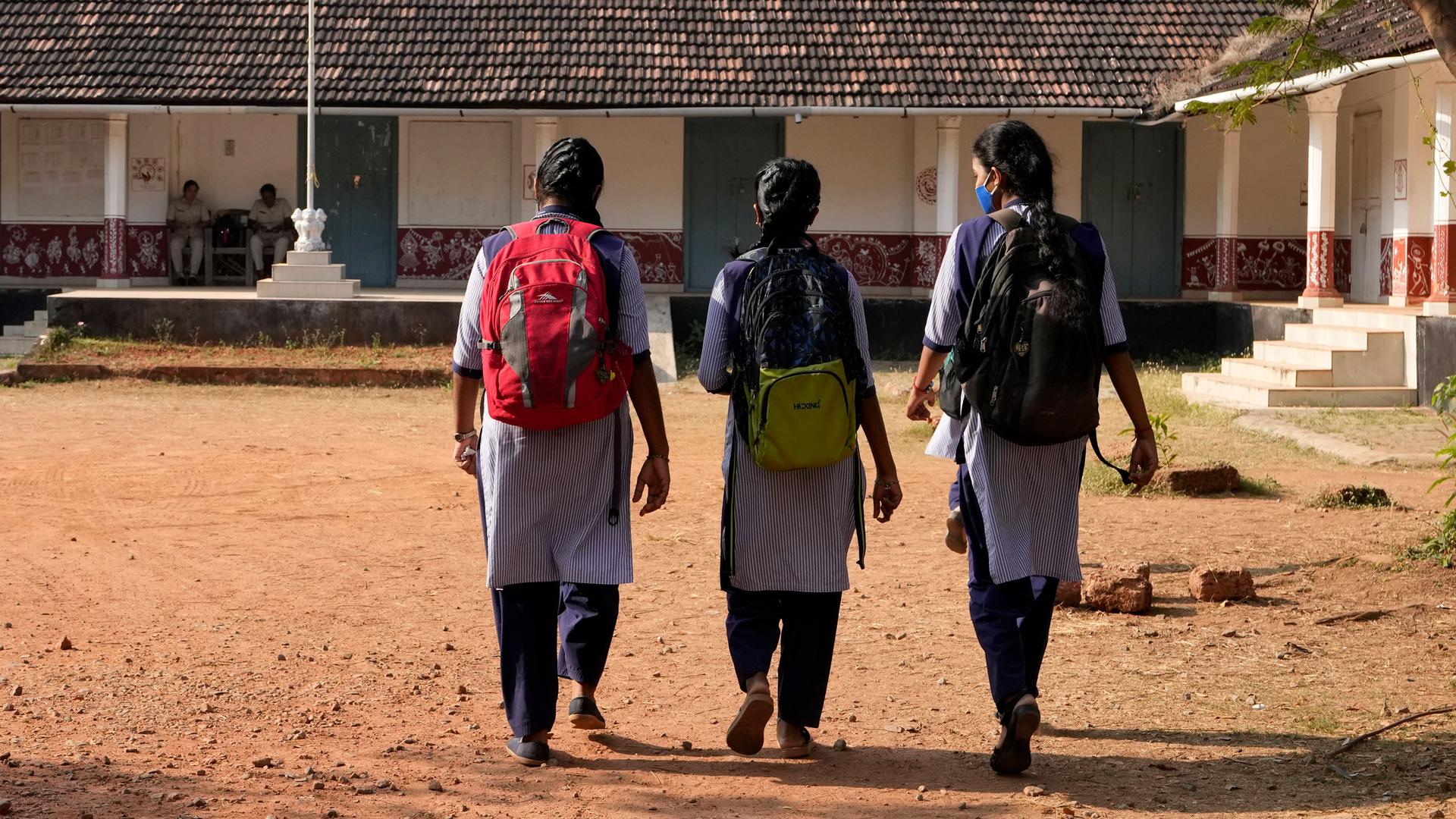The Indian government’s new textbooks for grades 6 through 12 have some significant omissions in them related to Indian history.
The new books downplay the achievements of the Mughals — Muslim rulers from Central Asia — who ruled most of northern India for about 300 years, while Hindu rulers of Vijayanagara ruled large parts of southern India.
“The question arises, why are the Mughals dropped from the syllabus and why have they kept Vijayanagara kings?” asked Mridula Mukherjee, author of the 2008 book “RSS, School Texts and the Murder of Mahatma Gandhi: The Hindu Communal Project.”
The new textbooks have also removed the mention of India’s first education minister, Maulana Azad, a stalwart Muslim leader who fought for India’s independence from the British.
Students will also see no mention of the anti-Muslim riots of 2002, under the watch of Prime Minister Narendra Modi, when bout 2,000 people (mostly Muslims) were killed in the violence.
“They have retained a chapter on the religious violence under the opposition Congress rule though,” said Delhi University professor Apoorvanand, who goes by one name.
Muslims are the largest minority religious group in India and have seen an increase in violence against them — ranging from demolitions of their homes, lynchings and incarceration.
The National Council of Educational Research and Training (NCERT), the government-run organization under the federal Education Ministry, oversaw the textbook deletions.
At a press conference, NCERT director Dinesh Prasad Saklani defended the deletions as “necessary,” claiming that pandemic disruptions demanded workload reductions in classrooms.
But not all educators and historians see the logic in that response.
Aditya Mukherjee, professor of contemporary Indian history at Jawaharlal Nehru University, said he wondered how removing names like Maulana Azad might reduce students’ workload.
Apoorvanand said he thinks that these deletions reflect the Hindu nationalist view that India was a perfect Hindu nation before Muslim rulers arrived, prompting them to shorten chapters on caste and gender discrimination as well.
According to the Hindu nationalist view, ancient India had no discrimination or persecution of any community, Apoorvanand said.
The new textbooks also offer a revised definition of democracy with the removal of chapters on democratic dissent, protest movements and diversity.
These teachings emphasized that a key part of democracy is to hold the powerful accountable, Apoorvanand said.
“And that is not how the current government understands democracy. For them, democracy ends at casting a vote.”
For now, schools in India are on vacation. But, more than 250 million children will study from the new textbooks when they return in a couple of months.
Aditya Mukherjee said the impact of these deletions will be far-reaching because many state governments model their textbooks after federal ones. Moreover, students who take entrance exams for university will need to study from these textbooks.
This is not the first time that the BJP has tried to revise federal textbooks. In 2018, junior Education Minister Satyapal Singh dismissed Darwin’s theory of evolution because no one saw apes turn into men and wanted it removed from school textbooks. Now, students in grades 9 and 10 do not study the theory of evolution.
Some historians say these most recent changes are even more drastic. Mridula Mukherjee said rewriting history is one of the steps a society takes toward genocide.
“We have been adequately warned now, we know what happened in Germany, we know what happened in Italy, we know what happened in Rwanda, we know what happened to the Armenians,” she said.
Senior academics and scholars have signed petitions opposing the textbook cuts. And some state governments have said their students will not study from the federal government books, using the state’s textbooks instead.
“However, if all such resistance fails, we will produce bigoted morons,” Aditya Mukherjee said.
